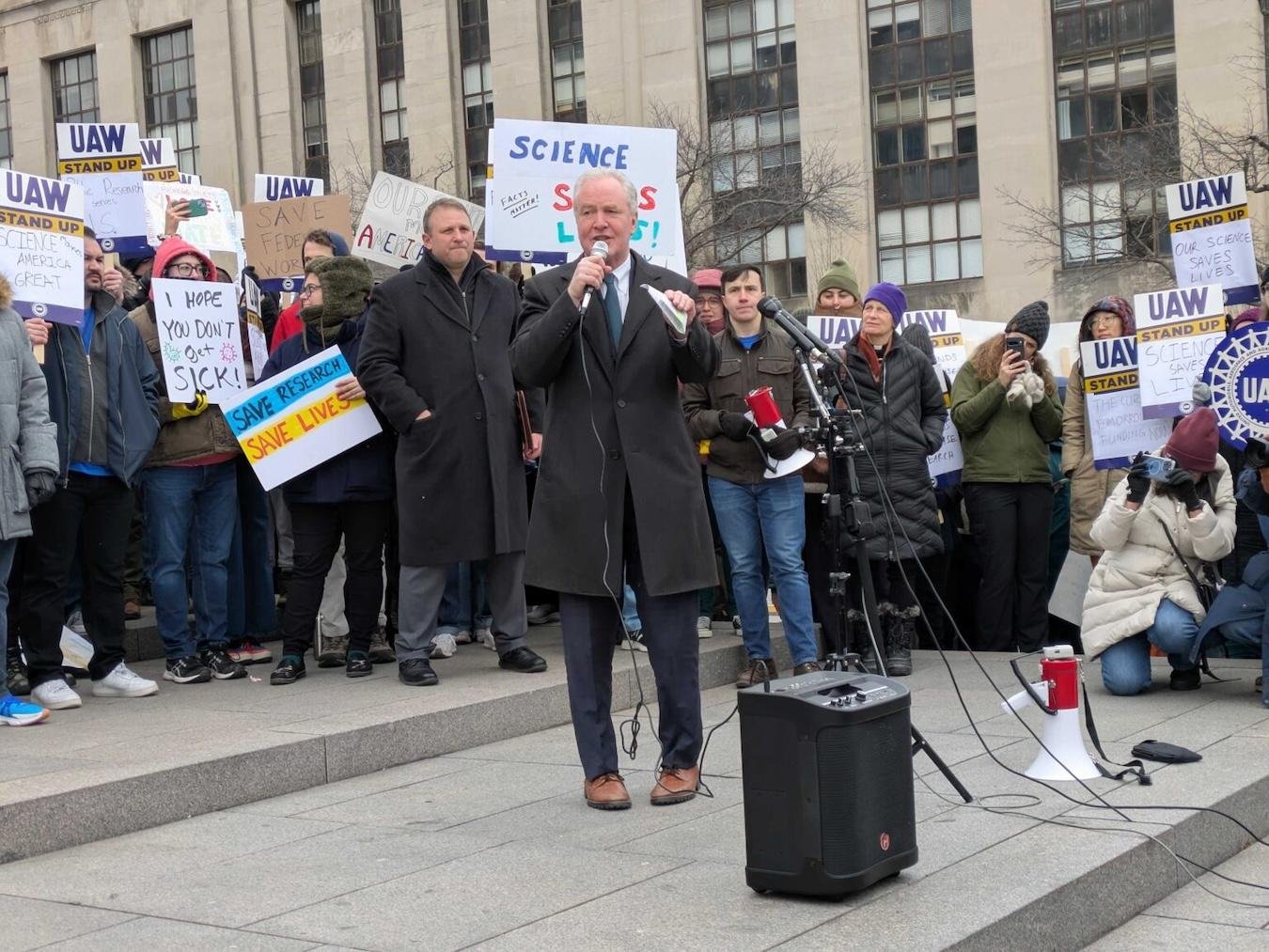Business
Judge Revives Thousands of Federal Jobs Slashed in Trump-Musk Era

A federal judge in Maryland has mandated that federal agencies across 19 states and the District of Columbia reinstate thousands of probationary workers terminated under a controversial White House initiative led by adviser Elon Musk. The ruling came late Tuesday from U.S. Judge James Bredar, who issued a preliminary injunction affecting 20 federal departments and agencies.
The states impacted include Arizona, California, Colorado, Connecticut, Delaware, the District of Columbia, Hawaii, Illinois, Maryland, Massachusetts, Michigan, Minnesota, Nevada, New Jersey, New Mexico, New York, Oregon, Rhode Island, Vermont, and Wisconsin.
This lawsuit is one of many challenging practices from President Donald Trump’s administration, which has been criticized for significant cuts to federal staffing and funding, extensive arrests and deportations, as well as issues related to privacy and press access. Both Trump and Musk have voiced discontent with the judiciary, even calling for the impeachment of judges who rule against them.
On Wednesday, Idaho Senator Chuck Grassley, chair of the Senate Judiciary Committee, criticized the judiciary’s role, asserting that judges should not dictate national policy. The lawsuit, presented by Democratic attorneys general, originally sought a nationwide injunction, claiming that the mass firings were illegal and financially damaging to the states. However, Bredar limited the order to the jurisdictions of the plaintiffs.
Bredar had previously issued a temporary emergency order requiring the reinstatement of all 24,418 fired probationary workers and showed hesitation at a March 26 hearing regarding a broader extension. The extent of firings across the affected states remains unclear, with the potential for a number of terminations from other locations as well.
According to Bredar’s order, federal agencies must restore the positions of terminated workers by April 8 at 2 p.m. Eastern time and cannot make further reductions in force involving these employees without legal compliance. The agencies named in the lawsuit include significant departments such as Agriculture, Defense (civilian employees only), Education, and Health and Human Services, among others.
The states’ claims highlight the devastating effects of the mass firings, with the absence of legally required advance notices preventing them from properly preparing for the resulting unemployment. In his accompanying memorandum, Bredar noted that while most states did not join the lawsuit, the need for nationwide injunctions is rare and that protection can be afforded to the litigating states without extending authority elsewhere.


















